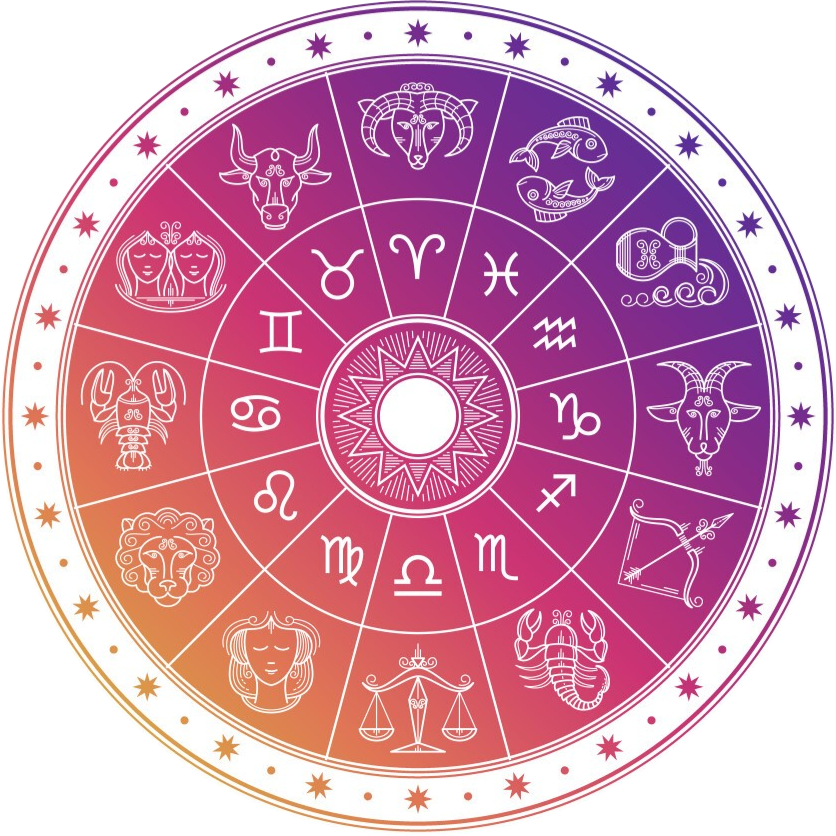Zodiac Signs
The zodiac consists of 12 signs, each representing different personality traits. Here's a brief overview of each sign:
Aries (March 21 - April 19): Assertive, courageous, energetic
Taurus (April 20 - May 20): Practical, reliable, sensual
Gemini (May 21 - June 20): Curious, adaptable, social
Cancer (June 21 - July 22): Emotional, nurturing, intuitive
Leo (July 23 - August 22): Charismatic, creative, confident
Virgo (August 23 - September 22): Analytical, detail-oriented, practical
Libra (September 23 - October 22): Diplomatic, charming, balanced
Scorpio (October 23 - November 21): Intense, passionate, resourceful
Sagittarius (November 22 - December 21): Adventurous, optimistic, independent
Capricorn (December 22 - January 19): Disciplined, responsible, ambitious
Aquarius (January 20 - February 18): Innovative, independent, humanitarian
Pisces (February 19 - March 20): Compassionate, artistic, intuitive
Planets and Their Influence
In astrology, each planet represents certain energies that influence different aspects of life. Here are some of the most important planets:
Sun: Represents your core self, ego, and identity.
Moon: Governs emotions, instincts, and your subconscious.
Mercury: Affects communication, thinking, and intellect.
Venus: Governs love, beauty, and relationships.
Mars: Represents energy, action, and drive.
Jupiter: Symbolizes growth, optimism, and abundance.
Saturn: Influences discipline, structure, and responsibility.
Uranus: Represents innovation, originality, and sudden changes.
Neptune: Governs dreams, intuition, and spiritual growth.
Pluto: Represents transformation, power, and rebirth.
Houses in Astrology
The sky is divided into 12 sections, or "houses," each representing a different aspect of life. Here’s a brief description of the 12 houses:
1st House: Self-image, personality
2nd House: Money, values, possessions
3rd House: Communication, short trips, siblings
4th House: Home, family, roots
5th House: Creativity, romance, children
6th House: Health, daily work, service
7th House: Partnerships, marriage
8th House: Transformation, sex, shared resources
9th House: Travel, higher education, philosophy
10th House: Career, reputation, authority
11th House: Friendships, social groups, dreams
12th House: Subconscious, isolation, spirituality
Aspects in Astrology
Aspects refer to the angles that planets form with one another. They are critical in astrology because they reveal how the energies of planets interact. Below are common aspects and their meanings:
Conjunction: Planets in the same position, intensifying their combined energies.
Opposition: Planets opposite each other, creating tension but also balance.
Square: A challenging aspect (90-degree angle) that may create conflict.
Trine: A harmonious aspect (120-degree angle) that brings ease and flow.
Sextile: A supportive aspect (60-degree angle) that provides opportunities.
Retrograde Planets
When a planet appears to move backward through the zodiac (retrograde motion), its energy is often misunderstood or blocked. Here’s what you need to know about retrogrades:
Mercury Retrograde: Known for communication mishaps, delays, and technology problems.
Venus Retrograde: A time for reflecting on relationships, love, and personal values.
Mars Retrograde: A period of re-evaluating action, ambition, and energy levels.
Birth Chart (Natal Chart)
Your birth chart is a map of where all the planets were located at the time of your birth. Each planet's position reveals insights into your personality, strengths, and challenges:
- Sun Sign: Represents your core identity and ego.
- Moon Sign: Governs emotions and your subconscious self.
- Rising Sign: Also known as the Ascendant, represents how others see you and your outward persona.
